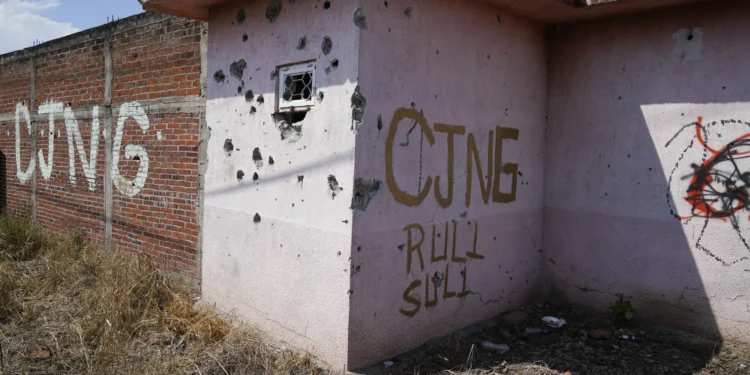The recent sentencing of Ruben Oseguera-Gonzalez, also known as “El Menchito,” has been hailed as a major victory in the ongoing fight against drug cartels in Mexico. Oseguera-Gonzalez, the co-leader of the notorious Jalisco New Generation Cartel, was sentenced to life in prison by a US federal court for his involvement in drug trafficking and other criminal activities. However, while this may seem like a significant blow to the drug trade, the reality is that it will do little to stem the flow of drugs into the United States.
The sentencing of Oseguera-Gonzalez comes at a time when the Trump administration has ramped up its efforts to combat drug trafficking from Mexico. President Trump has repeatedly called for a stronger border wall and increased security measures to prevent drugs from entering the country. While these measures may seem like a step in the right direction, the reality is that they are not addressing the root causes of the drug trade and will do little to actually reduce the flow of drugs.
The Jalisco New Generation Cartel, also known as CJNG, is one of the most powerful and violent drug cartels in Mexico. They are responsible for a significant portion of the drugs that enter the United States, including methamphetamine, fentanyl, and heroin. The cartel has a strong presence in both Mexico and the United States, making it difficult to dismantle their operations completely. While the sentencing of Oseguera-Gonzalez may temporarily disrupt their activities, it is unlikely to have a lasting impact on the drug trade.
The reality is that the drug trade is a complex issue that cannot be solved by simply incarcerating one individual. The demand for drugs in the United States is a major driving force behind the drug trade, and as long as there is a demand, there will always be someone willing to supply it. In addition, the poverty and lack of economic opportunities in Mexico make it an ideal environment for drug cartels to thrive. As long as these underlying issues are not addressed, the drug trade will continue to flourish.
Moreover, the Trump administration’s approach to the drug war is misguided and counterproductive. By focusing solely on increasing border security and cracking down on drug traffickers, they are neglecting the root causes of the problem. This approach has been tried before and has only resulted in more violence and instability in Mexico. The “war on drugs” has been a failure, and it is time for a new approach that focuses on prevention, treatment, and addressing the social and economic factors that contribute to drug use and trafficking.
The sentencing of Oseguera-Gonzalez may make for a good headline, but it is not a solution to the drug problem. It is merely a band-aid on a much larger issue that requires a comprehensive and holistic approach. The United States and Mexico must work together to address the root causes of the drug trade and find ways to reduce the demand for drugs. This includes investing in education, job creation, and social programs that can provide alternatives to individuals who may turn to drug trafficking as a means of survival.
In addition, the United States must also take responsibility for its role in the drug trade. The demand for drugs in the US is a major driving force behind the drug trade, and until this demand is addressed, the flow of drugs will continue. The US must also address its own issues with drug addiction and provide better access to treatment for those struggling with substance abuse.
In conclusion, while the sentencing of Oseguera-Gonzalez may seem like a victory in the fight against drug trafficking, it is only a small step in a much larger and more complex issue. The “war on drugs” has been a failure, and it is time for a new approach that focuses on addressing the root causes of the problem. The US and Mexico must work together to find solutions that will truly make a difference and reduce the flow of drugs into our communities. Only then can we truly make progress in the fight against the drug trade.






